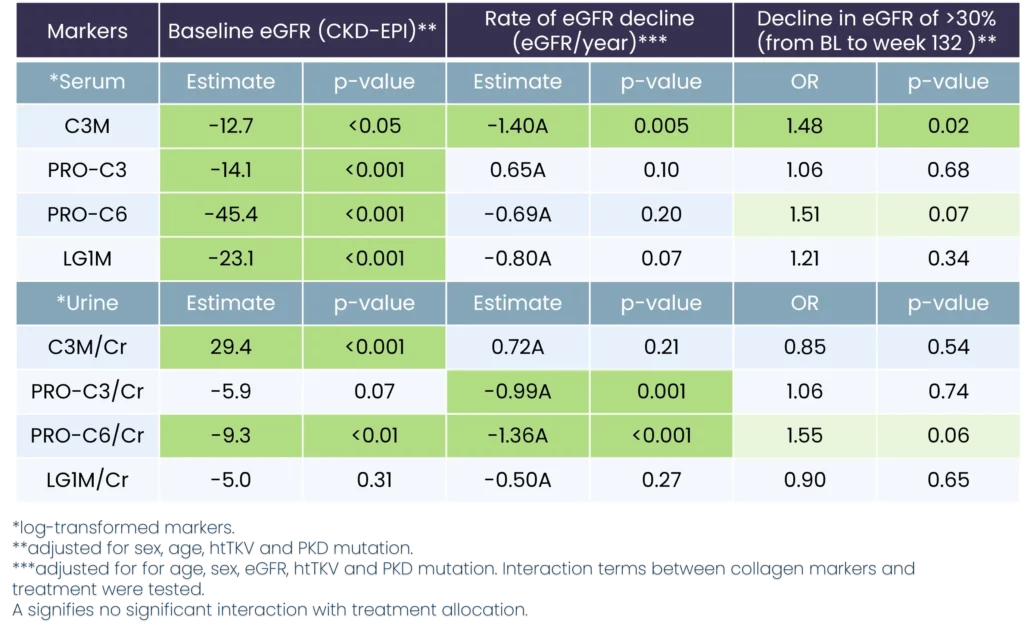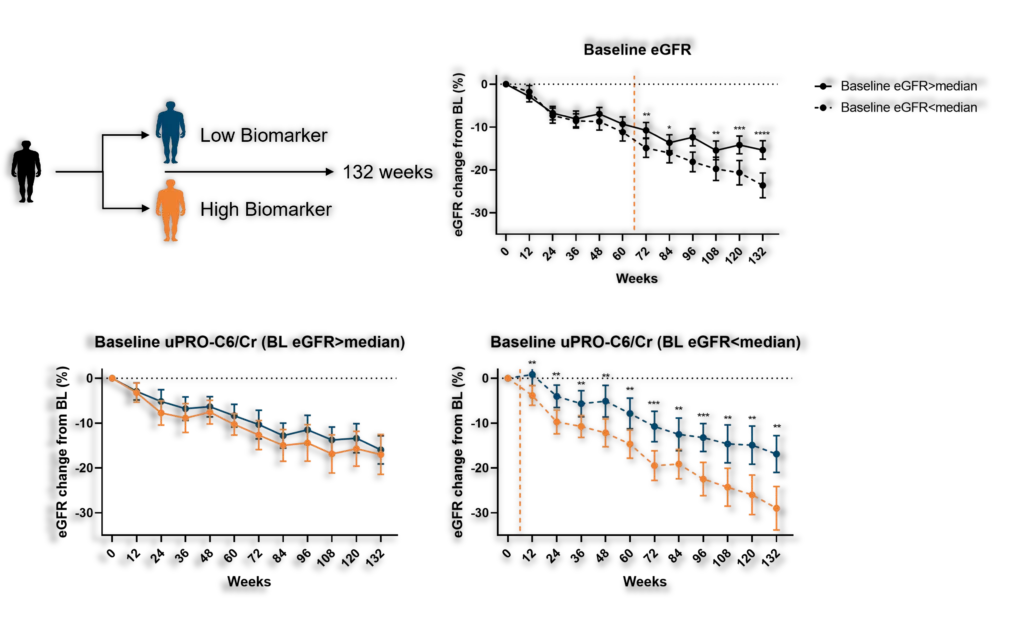Can we see the future of kidney function with a simple urine test?
July 18, 2022
The future of the kidney with a simple urine test
Autosomal dominant polycystic kidney disease (ADPKD) is a hereditary condition that causes the development of cysts in the kidneys. This condition affects millions of people worldwide and can lead to kidney failure if left untreated. One of the biggest challenges in treating ADPKD is identifying biomarkers that can predict disease progression and response to treatment.
Our Renal and Cardiovascular Research team showed that biomarkers of collagen remodeling measured in urine and circulation at baseline are associated with the rate of decline in kidney function in patients with ADPKD. In the study (DIPAK-1), we measured the effect of lanreotide on patients with stage 3 chronic kidney disease. The following demographics were involved:

To assess the effect of lanreotide, the team selected a number of biomarkers that were best suited to assess the effect of the drug on interstitial matrix turnover and basement membrane turnover. We have selected a number of biomarkers:
- PRO-C3, measuring collagen type III formation in serum and urine (interstitial matrix turnover)
- C3M, measuring collagen type III degradation in serum and urine (interstitial matrix turnover)
- PRO-C6, measuring collagen type VI formation in serum and urine. Also measures the release of the bioactive fragment endotrophin, associated with pro-fibrotic and pro-inflammatory processes (interstitial matrix turnover)
- LG1M, measuring Laminin gamma 1 degradation in serum and urine (basement membrane turnover)


The data we found implies that fibrogenesis may be an important pathophysiological process driving ADPKD disease progression. In addition, the use and development of drugs that interfere with fibrogenesis may be promising to halt disease progression in ADPKD. However, we still need to validate in an independent cohort, preferably in early-stage disease.
The findings of the study are significant because they offer new insights into the potential for biomarkers to predict disease progression in ADPKD. This information may help clinicians to identify patients who are at risk of developing kidney failure and to develop more effective treatments to slow or halt disease progression.
We have shown that biomarkers of collagen remodeling are associated with the rate of decline in kidney function in patients with ADPKD. These findings suggest that fibrogenesis may be an important pathophysiological process driving ADPKD disease progression and that the use of drugs that interfere with fibrogenesis may be promising to halt disease progression. Further research is needed to validate these findings in an independent cohort, but the results of this study offer new hope for patients with ADPKD.
We believe it is time to put kidney fibrosis more in the center – even in diseases where other aspects (such as kidney volume) are the focus of attention. At Nordic Bioscience, we have the tools to do so.




